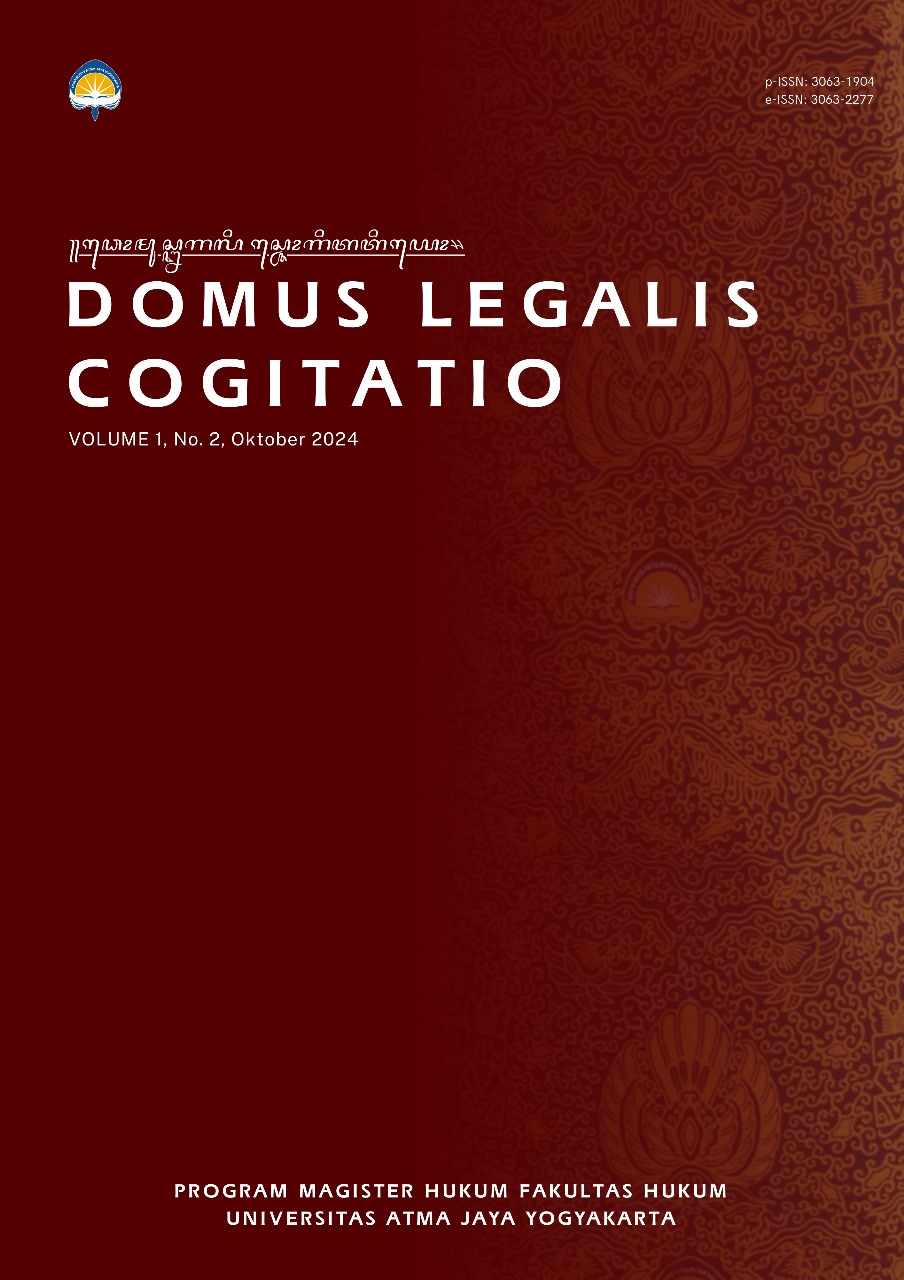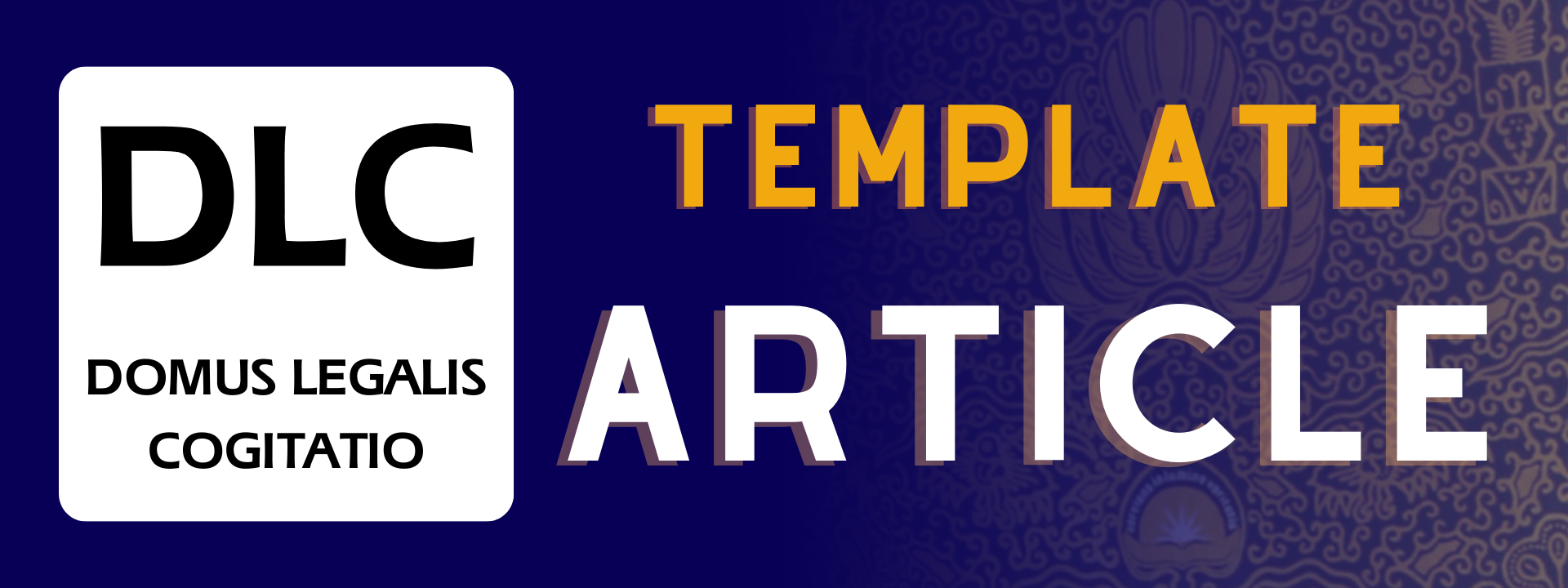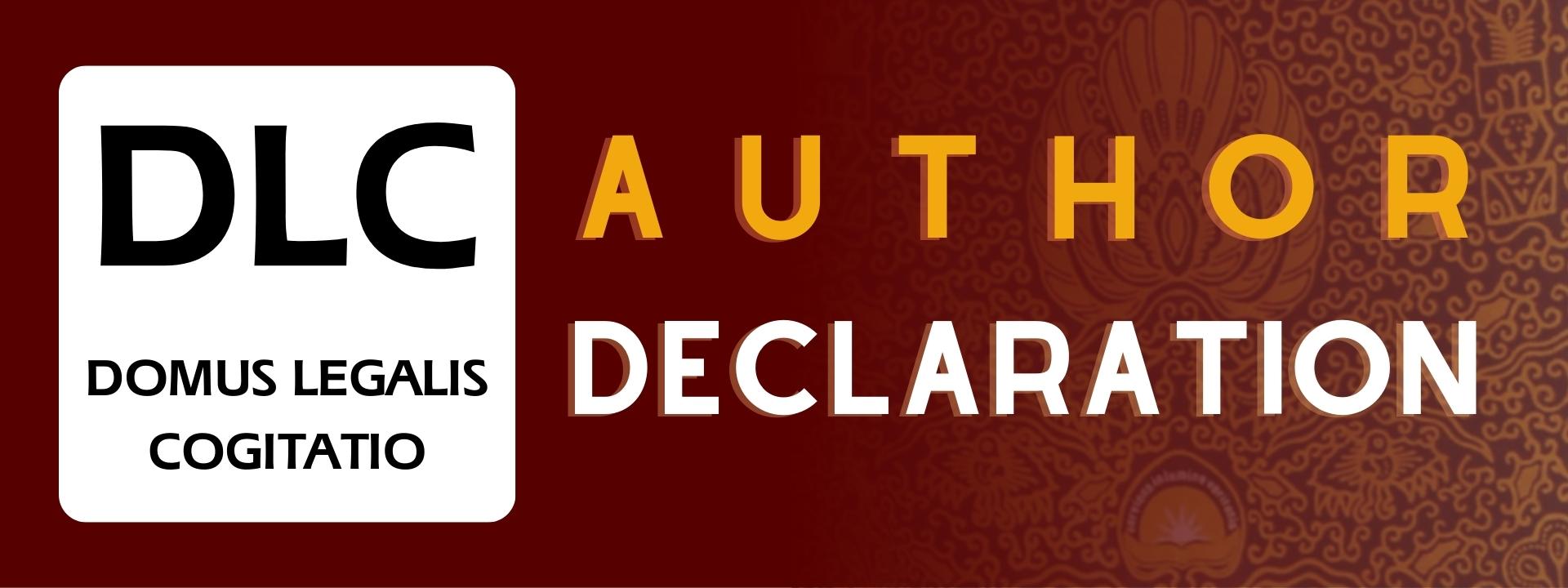PREVENTING TOKENISM IN THE FORMATION OF LEGISLATION THROUGH MEANINGFUL PUBLIC PARTICIPATION
DOI:
https://doi.org/10.24002/dlc.v1i2.9907Keywords:
Meaningful Public Participation, Public Sphere, TokenismAbstract
The Constitutional Court Decision Number 91/PUU-XVIII/2020 expands the meaning of public participation, namely that public participation in forming laws needs to be carried out meaningfully. The discussion about public participation is closely related to the relationship between the community and the state in forming policies that the state will issue to regulate its citizens. This paper analyzes the arrangements for meaningful public participation after the second amendment to Law Number 12 of 2011 concerning the Formation of Legislation (UUP3) with two objectives, first to find out the arrangements for meaningful public participation after the second amendment to UUP3 from the perspective of the Arnstein Participation Ladder. Two to knowing the meaning of meaningful public participation so as not to be in the area of tokenism. The results of the study show that the regulation of public participation is in the area of tokenism because there is no guarantee that decision-makers will accommodate the voice of the community. The way to increase public participation while at the same time encouraging community involvement far beyond tokenism is to arrange a public sphere mechanism for public debate to occur as the basis for drafting the National Legislation Program.
References
References
Books
Dewata, Mukti Fajar Nur dan Achmad Yulianto, Dualisme Penelitian Hukum Normatif dan Empiris, Yogyakarta: Fakultas Hukum Universitas Muhammadiyah Yogyakarta, 2007.
Marzuki, Peter Mahmud, Penelitian Hukum Edisi Revisi, Jakarta: Kencana, 2005.
Journal Articles
Anggono, Bayu Dwi, “Omnibus Law Sebagai Teknik Pembentukan Undang-Undang: Peluang Adopsi Dan Tantangannya Dalam Sistem Perundang-Undangan Indonesia”, RechtsVinding 9, no. 1 (2020): 17-37, http://dx.doi.org/10.33331/rechtsvinding.v9i1.38.
Arlinandes, M Jeffri, et. al., “Rekonstruksi Tahapan Pembentukan Perundang-Undangan: Urgensi Re-Harmonisasi Dan Evaluasi Sebagai Siklus Pembentukan Undang-Undang Yang Berkualitas”, Jurnal Legislasi Indonesia 19, no. 4 (2022): 548-564, https://doi.org/10.54629/jli.v19i4.980.
Arnstein, Sherry R., “A Ladder of Citizen Participation”, Journal of the American Institute of Planners 35, no. 4 (July, 1969): 216-224, https://doi.org/10.1080/01944366908977225.
Artioko, Fiqih Rizki, “Pengadopsian Partisipasi Masyarakat Yang Bermakna (Meaningful Participation) Dalam Undang-Undang Nomor 13 Tahun 2022 tentang Perubahan Kedua Undang-Undang Nomor 12 Tahun 2011 Tentang Pembentukan Peraturan Perundang-Undangan”, Al-Qisth Law Review 6, no. 1 (2022): 52-83, http://dx.doi.org/10.24853/al-qisth.6.1.52-83.
Fadillah, Nor, “Penerapan Asas Keterbukaan Dalam Pembentukan Undang-Undang Tentang Cipta Kerja dan Undang-Undang Tentang Ibu Kota Negara”, Lex Renaissance 7, no. 2 (2022): 243-264, https://doi.org/10.20885/JLR.vol7.iss2.art3.
Fatanen, Ary, “Eksistensi Kewenangan Daerah Dalam Perlindungan dan Pengelolaan Lingkungan Hidup Pasca Diterbitkannya Undang-Undang Cipta Kerja”, Khazanah Hukum 3, no. 1 (2021): 1-7, https://doi.org/10.15575/kh.v3i1.10009.
Firdaus, Fahmi Ramadhan, “Public Participation After The Law-Making Procedure Law of 2022”, Jurnal Ilmiah Kebijakan Hukum 16, no. 3 (2022): 495-514, https://doi.org/http://dx.doi.org/10.30641/kebijakan.2022.V16.495-514.
Ginting, Miko, “Koalisi Pemantau Peradilan: Refleksi Dari Masyarakat Sipil, Keterlibatan Tokenisme, Hingga Merajut Modal Sosial”, Jurnal Peradilan Indonesia (Teropong) 6, (July-December, 2017): 77-100, https://mappifhui.org/wp-content/uploads/2018/02/Jurnal-Teropong-Vol-6-Juli-Desember-2017.pdf.
Haliim, Wimmy, “Demokrasi Deliberatif Indonesia: Konsep Partisipasi Masyarakat Dalam Membentuk Demokrasi Dan Hukum Yang Responsif”, Jurnal Masyarakat Indonesia 42, no. 1 (2016): 19-30, https://doi.org/10.24843/kp.2008.v33.i01.p01.
Jati, Rahendro, “Partisipasi Masyarakat Dalam Proses Pembentukan Undang-Undang Yang Responsif (Community Participation in Order to Create the Responsive Law)”, Jurnal RechtsVinding 1, no. 3 (2012): 329-342, http://dx.doi.org/10.33331/rechtsvinding.v1i3.88.
Kamarudin, “Tinjauan Yuridis Partisipasi Masyarakat Dalam Proses Pembentukan Undang-Undang”, Perspektif Hukum 15, no. 2 (2015): 184-203, https://doi.org/10.30649/ph.v15i2.35.
Nurjaman, Dirman, “Penerapan Asas Keterbukaan Dalam Proses Pembuatan Undang-Undang Omnibus Law”, Khazanah Multidisiplin 2, no. 2 (2021): 57-69, https://doi.org/10.15575/kl.v2i2.13165.
Prastyo, Angga, “Batasan Prasayarat Partisipasi Bermakna Dalam Pembentukan Undang-Undang di Indonesia Limitation of Meaningful Participation Requirements In The Indonesian Law-Making Process”, Hukum dan Peradilan 11, no. 3 (2022): 405-436, https://doi.org/10.25216/jhp.11.3.2022.405-436.
Prastyo, Angga, et. al., “Pengaturan Asas Keterbukaan Dalam Pembentukan Undang-Undang”, Jurnal Cakrawala Hukum 11, no. 2 (2020): 125-135, https://doi.org/10.26905/idjch.v11i2.4136.
Rishan, Idul, “Evaluasi Performa Legislasi Dalam Pembentukan Omnibus Law Cipta Kerja : Kajian Legisprudensi”, Undang: Jurnal Hukum 5, no. 1 (2022): 43-67, https://doi.org/10.22437/ujh.5.1.43-67.
Riskiyono, Joko, “Partisipasi Masyarakat Dalam Pembentukan Perundang-Undangan Untuk Mewujudkan Kesejahteraan Public Participation in the Formation of Legislation to Achieve Prosperity”, Aspirasi 6, no. 2 (December, 2015): 159-176, https://doi.org/10.46807/aspirasi.v6i2.511.
Seta, Salahudin Tunjung, “Hak Masyarakat Dalam Pembentukan Peraturan Perundang-Undangan,” Jurnal Legislasi Indonesia 17, no. 2 (2020): 154, https://doi.org/10.54629/jli.v17i2.530.
Suryati, et. al., “Tinjauan Hukum Terhadap Omnibus Law Undang-Undang Cipta Kerja”, Simbur Cahaya 28, no. 1 (June, 2021): 166-186, https://doi.org/10.28946/sc.v28i2.902.
SY, Helmy Chandra and Shelvin Putri Irawan, “Perluasan Makna Partisipasi Masyarakat Dalam Pembentukan Undang-Undang Pasca Putusan Mahkamah Konstitusi Expansion Meaning of Public Participation in the Formation of Laws After Decision of Constitutional Court”, Jurnal Konstitusi 19, no. 4 (2022): 766-793, https://doi.org/https://doi.org/10.31078/jk1942.
Wahyuni, Liza Farihah and Della Sri, “Demokrasi Deliberatif Dalam Proses Pembentukan Undang-Undang Di Indonesia: Penerapan dan Tantangan Ke Depan”, Lembaga Kajian & Advokasi Independensi Peradilan 3 (2015): 1-10, http://leip.or.id/wp-content/uploads/2015/10/Della-Liza_Demokrasi-Deliberatif-dalam-Proses-Pembentukan-Undang-Undang-di-Indonesia.pdf.
Article in an Anthology with an Editor
Wijayanti, Septi Nur and Kelik Iswandi, “Pengaruh Parliamentary Treshold Terhadap Partisipasi Publik”, in Menagih Komitmen Pemerintah Mewujudkan Keadilan Sosial, ed. Nanik Prasetyoningsih, Tanto Lailam, and Putri Anggia (Yogyakarta: LP3M Universitas Muhammadiyah Yogyakarta, 2018).
Research Result
Pertiwi, Mahaarum Kusuma, Yance Arizona, Dr. Herlambang P. Wiratraman, and I Gusti Agung Made Wardana, “Putusan MK Terkait UU Cipta Kerja”, (Policy Paper, Fakultas Hukum Universitas Gadjah Mada, 2022).
Internet
Andika, Pundarika Vidya, “Mengenal Arnstein’s Ladder Dalam Menata Partisipasi Publik", January 11, 2022, https://iap2.or.id/mengenal-arnsteins-ladder-dalam-menata-partisipasi-publik.
CNBC, “Isi Revisi UU Pilkada Pemicu Demo, Ini 2 Poin Penting Versi DPR & MK”, August 23, 2024, https://www.cnbcindonesia.com/news/20240823094111-4-565778/isi-revisi-uu-pilkada-pemicu-demo-ini-2-poin-penting-versi-dpr-mk.
Merriam-Webster.Com, "Tokenism", January 16, 2023, https://www.merriam-webster.com/dictionary/tokenism#dictionary-entry-1.
Saptohutomo, Aryo Putranto, “UU Pilkada Direvisi Usai Putusan MK, Pakar: Demokrasi Hanya Papan Nama”, August 22, 2024, https://nasional.kompas.com/read/2024/08/22/10155041/uu-pilkada-direvisi-usai-putusan-mk-pakar-demokrasi-hanya-papan-nama.
Law and Regulations
Indonesia, Central Government. Law No 13 of 2022 regarding the Second Amendment to Law Number 12 of 2011 concerning the Establishment of Legislative Regulations (2022).
Mahkamah Konstitusi RI. Data Putusan Mahkamah Konstitusi RI (2023).
____________________. Salinan Putusan Nomor 91/PUU-XVIII/2020 (2020).










